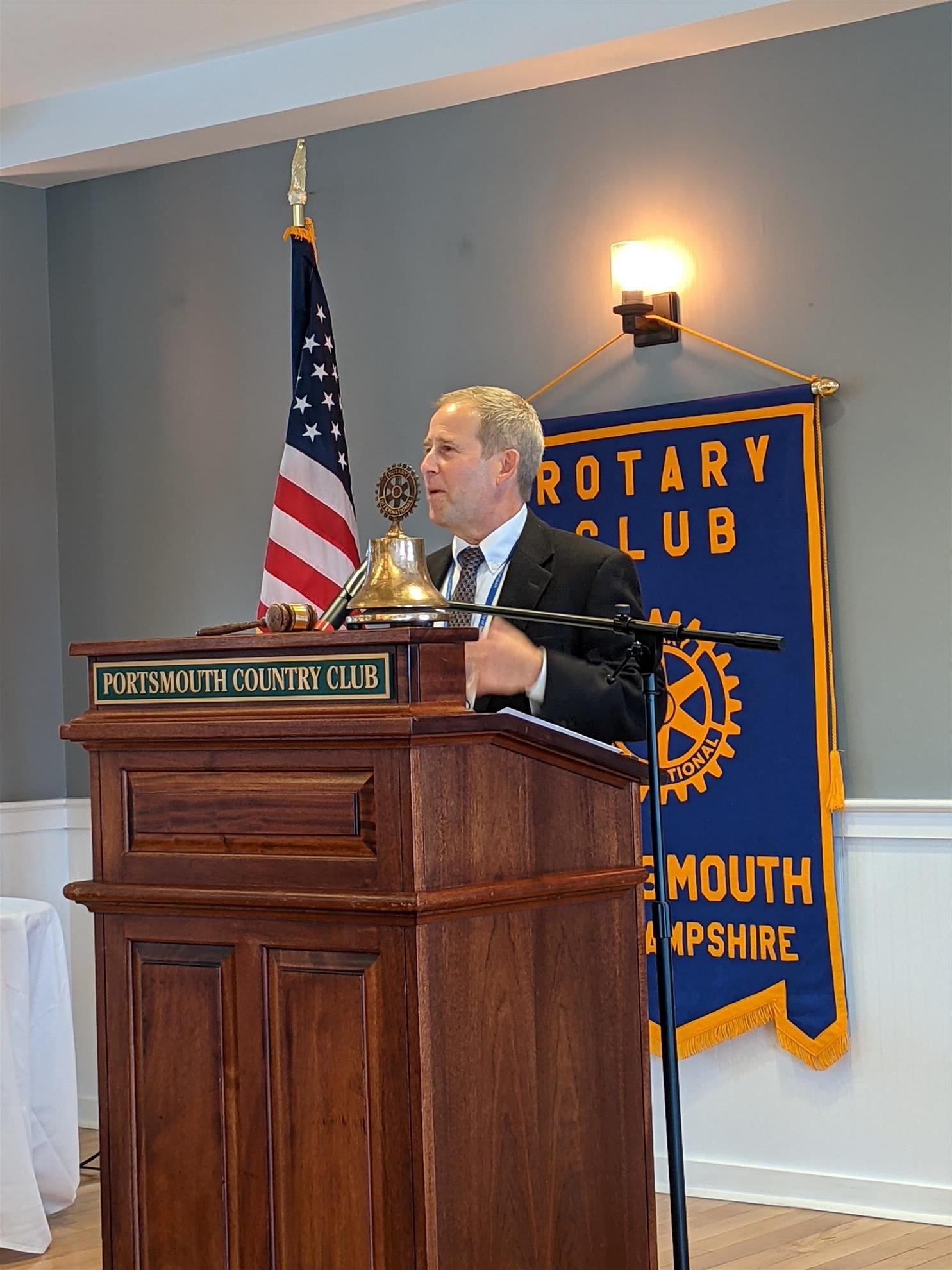Rotary Log for October 14th, 2021

A beautiful fall day greeted Rotarians as we gathered at the Portsmouth Country Club.

Rotary Golf Tournament Chair Marie Brownell thanked everyone who participated in the event. Thanks to sponsors and golfers, the contest raised $23,500 dollars.
Usually a spring event, the tournament was shifted to fall due to Covid19. Next year it moves back to the late spring with a date set for June 10, 2022. The board considered all the other fall events the club hosts and decided returning golf to spring/early summer still makes sense.
The Rotary “Winning Team” trophy, the Rotary Cup, and bragging rights until next June go to Doug MacDonald, Andy Chace, Justin Gamester and Past President Ben Wheeler. Many thanks to Doug MacDonald for generously donating the entire proceeds of the tournament raffle, over $800, back to Rotary. Thank you, Doug!!
October is Rotary Foundation Month. Dave Underhill will give us a quick presentation next week.
Lots of Happy Dollars were shared including Francoise who met her new grandson in person…Larry Gray welcomed a granddaughter…Nicole Clark was happy to attend her first meeting following the birth of her son Braeden Arthur. Congratulations to all!
A very generous visitor from Minnesota donated $10 happy dollars in honor of his wonderful visit to our area.
The program.

Karen Conard, Portsmouth City Manager, introduced Peter Rice, Director of Public Works, and Terry Desmarais, City Engineer. They gave a brief presentation on the new and vastly improved sewage treatment plant.
The final product is remarkable. But let’s not get ahead of ourselves.. Back in the day, the Puddle Dock area, where Strawbery Banke is currently located, filled with raw sewage. It collected in the dock area and was decried as a health hazard and public nuisance. The space was filled in around 1899. Waste instead was carried out to the Piscataqua River by pipes. This out of sight out of mind pollution carried on into the 1940’s.

The second world war brought a housing boom to the area due to activity at Portsmouth Naval Shipyard. By 1962, the Portsmouth City Council was poised to make a controversial decision to locate a wastewater treatment facility at Pierce Island. The 5-4 vote to go ahead shows it was a hot topic but little background on other options was available.

The plant went online in 1964 and worked as a sedimentation system. In 2007 the city’s Environmental Protection Agency operational permit was changed. It no longer allowed primary effluent to be discharged into the Piscataqua.
The years 2007-2010 marked an extensive study of next steps, location and type of plant needed to meet new EPA requirements. The conclusion to remain at Pierce Island came about for many reasons, not the least of which was the urgency to act quickly as our permit was expiring. This ruled out options which would have required 10-20 years to put in place.

We now have a tertiary treatment facility which removes not only dissolved solids but also gases like nitrogen in the water. Those elements were negatively impacting the Great Bay Estuary.
The challenges of utilizing the site led the team to think outside the box and create a design that is unique. Our new facility boasts an award-winning scheme, energy efficiency, and stays within the 3.7-acre footprint of the current site.

Now that the facility is complete, the island will once again be opened to visitors including dog walkers. The fence along the water has been moved back to allow for an expansion of the trail system around the island. All things considered; the $92 million-dollar project will have huge environmental benefits for our region. It has also been designed with climate change and rising water levels in mind.

Terry concluded his very interesting presentation with a shout out to the operators at the new facility. He stressed that there can be a stigma about working in wastewater treatment but there shouldn’t be. The environmental aspects of the new facility call for operators with college degrees or higher levels of education. It is very complex to run and because of the impact to public health and the value of the facility itself, we need highly trained, top-notch staff to run it.

Overall, an extremely interesting presentation by our city staff!
Respectfully submitted, Aileen Dugan
Photos by Francoise Meissner













